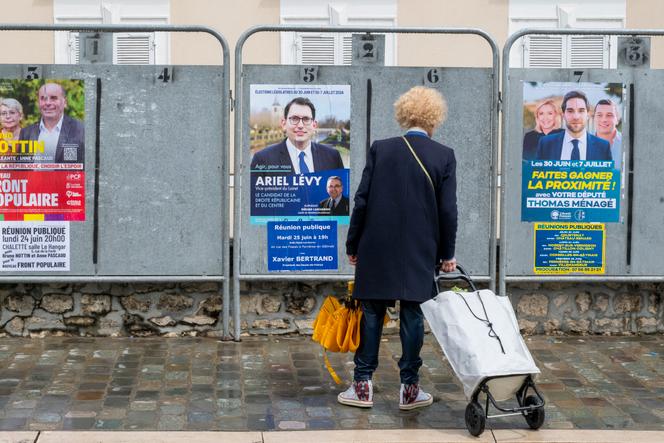


The political party has been sidelined from power, reduced to shreds at the ballot box, and crushed by the tectonics of shifting blocs. Since 2017 and François Fillon's failure in the first round of the presidential election, the conservative Les Républicains (LR) party, heir to the RPR and UMP parties, has marginalized itself. It's now fighting for survival, notably since 2022 with Valérie Pécresse's 4.8% result in the presidential election. François-Xavier Bellamy's 7.2% in June's European elections was not even seen as a potential rebound, but confirmation of the decline.
And yet, when you look beyond the results and dive into the details of opinion polls, right-wing voters have not disappeared. In the latest barometer on confidence in politics carried out in February by Sciences Po's Center for Political Research (Cevipof), 27% of respondents classified themselves as right-wing. It's a far larger group than the left (22%), the far right (9%) and the center (15%). "The right still exists, and in a very important way," summed up Bruno Cautrès, a researcher at Cevipof. "But its vitality is now measured in attitudes and ideas, with many French people still wishing to pay less tax, who want less government, fewer civil servants..."
"In a way, you could even say that in terms of values – conservatism, the feeling of decline, the need for security – the right has won. But it is no longer channeled by a single party," explained Frédéric Dabi, head of the IFOP polling institute.
It's hard to understand where this scattered electoral family stands today. When he yielded to the far-right Rassemblement National (RN), LR president Eric Ciotti repeatedly asserted that he was speaking on behalf of people on the right, while the party's top brass opposed the decision. "This is what the vast majority of our voters want. There's a huge gap between what we hear in Paris, the discussions at headquarters which are quite disconnected from reality, and what the grassroots are saying in my town of Nice or elsewhere," he explained on TF1 on June 11, when calling for an "alliance of the right" with Marine Le Pen's party, without ever mentioning the words "far right." On Thursday, June 20, in the far-right weekly Valeurs Actuelles, the party president even regretted that he was not able to organize a meeting to consult the party members on the issue. According to him, the vote would have been rejected by the party's heavyweights "because they knew the result in advance: [the LR] supporters are right-wing and they refuse to see the RN as an adversary."
You have 59.2% of this article left to read. The rest is for subscribers only.
